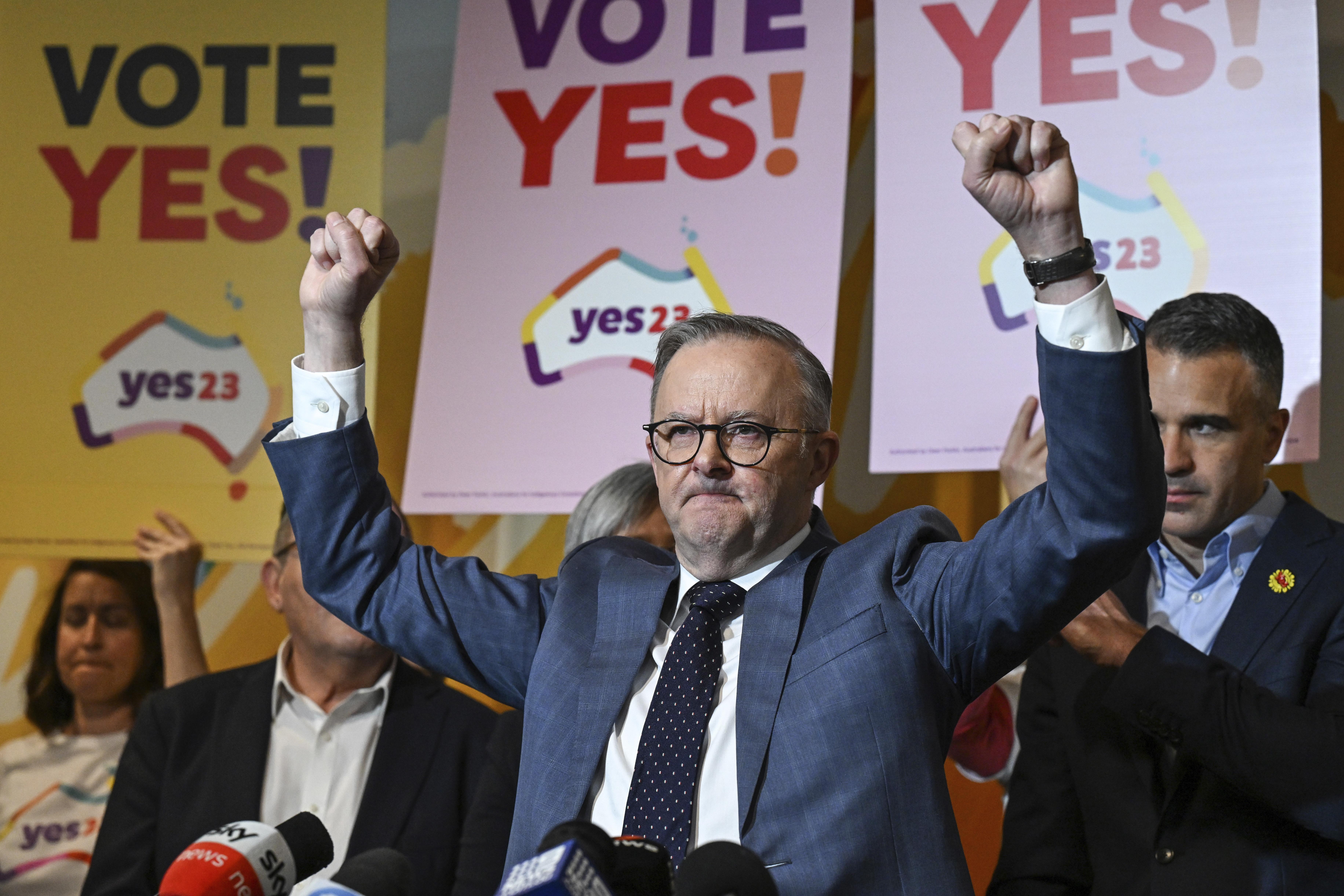 Australian Prime Minister Anthony Albanese shows his support for a yes vote during a visit to Adelaide, Oct 13, 2023. (PHOTO / AP)
Australian Prime Minister Anthony Albanese shows his support for a yes vote during a visit to Adelaide, Oct 13, 2023. (PHOTO / AP)
SYDNEY, CANBERRA - Australian Prime Minister Anthony Albanese said on Monday he accepted his share of blame for the failure of a referendum question on Indigenous recognition that could weaken his authority.
More than 60 percent of Australians voted "No" in the landmark referendum on Saturday that asked whether to alter the constitution to recognize the country's Indigenous peoples, and create an advisory body that would have advised parliament on matters concerning the community.
Albanese staked significant political capital on a "Yes" vote, pushing ahead despite the opposition Liberal party opposing it
Albanese staked significant political capital on a "Yes" vote, pushing ahead despite the opposition Liberal party opposing it.
Only eight of 45 referenda have been successful in Australia's history as a nation, none without bipartisan support.
ALSO READ: Australia rejects Indigenous referendum
He faced Liberal leader Peter Dutton during parliamentary question time on Monday for the first time since the referendum failure.
"We know that referendums are hard, that is why only eight of 45 have passed," Albanese said. "I certainly accept responsibility for the decisions that I have taken."
Dutton, who had backed a second referendum solely on recognizing Indigenous people in the constitution, appeared to row back on the pledge on Monday, saying there would be no appetite for a second vote "for some time".
Albanese's Labor party is polling at its lowest level since winning power in May 2022, though he still leads Dutton as the country's preferred leader.
READ MORE: Indigenous Australians vow silence after referendum fails
The referendum outcome is seen as a major setback for reconciliation efforts with the country's Indigenous community and risks damaging Australia's image in the world regarding how it treats people in that community.
"The damage from Saturday's vote will be extreme," an editorial in the Sydney Morning Herald said on Monday. "This will set back the cause of reconciliation, despite what politicians are saying."
The country's main business newspaper, the Australian Financial Review, called the result "heartbreaking" for the country's Indigenous community, who make up about 3.8 percent of the population and have suffered from centuries of neglect and discrimination since colonization by Great Britain in 1788.
Week of silence
On Sunday, Indigenous Australian leaders called for a week of silence after the referendum results were announced.
In a statement, a coalition of Indigenous organizations from across Australia who supported the referendum said they would take a week to "grieve" the result.
"This is a bitter irony. That people who have only been on this continent for 235 years would refuse to recognize those whose home this land has been for 60,000 and more years is beyond reason," leaders said in Sunday's statement, "We are calling for a week of silence to grieve this outcome and reflect on its meaning and significance."
They asked every Australian to "reflect hard" on the outcome of the referendum and to consider the role of "racism and prejudice" against Aboriginal and Torres Strait Islander people in the result.
ALSO READ: Indigenous Voice referendum: All you need to know
According to AEC data, regions with a high proportion of Indigenous Australians overwhelmingly voted in favor of the referendum. Of the 21 mobile polling booths sent by the AEC to remote Indigenous communities in the Northern Territory (NT), only one recorded a majority "no" vote and 17 returned "yes" votes exceeding 60 percent.


